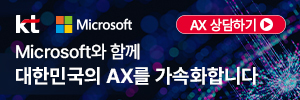Intel Korea’s odd press conference
- 가
- 가

powerusr@ddaily.co.kr
Intel Korea’s recent press conference is at issue.
The company held a press conference in the Federation of Korean Industries building in Yeouido, Seoul, on May 29.
There, Intel Korea announced its plan to enter the smart learning market in Korea in full scale with the Intel Education Solutions, which include tablets for education and software. IArirang was named as local distributor. IArirang is expected to conclude agreements with many educational content companies to produce platforms customized for Intel tablets and distribute them.
The press conference, however, has only left many questions behind.
Intel Korea handed out a press release at the press conference, which said, “About 20 major Korean educational companies joined the press conference to announce partnerships with Intel Korea.”
But in fact, only 13 firms attended. Moreover, not all of them had reached agreements with Intel on partnership by then. CEO of Intel Korea Lee Hui-sung, however, said the company had concluded partnerships with all of them. After a series of questions from reporters, Kim Jeong-han, director for education business of Intel Korea, confessed that they had reached agreements only with some of them. The press conference proved to be a place for seeking cooperation from reporters.
Intel sent a revised press release to reporters by e-mail in the afternoon. In it, it changed the phrase in the original text “…announced partnership” to “showed much interest in partnership.” The company had deceived reporters.
Another problem with the press conference was its briefing on the market, which was far from reality. CEO Hong Seung-yeon of iArirang said, “Electronic textbooks will be adopted in full scale in 2015.” He also said, “The size of the smart content market is expected to grow to 5 trillion won in 2017.”
The rosy forecast did not reflect reality. Accommodating criticisms from people in various fields, the Ministry of Education is rather trying to cut down its electronic textbook project. The Korea Institute for Curriculum and Evaluation, which is an affiliate organization of the ministry, recently recommended a delay in the introduction of electronic textbooks until 2018.
Their criticism of the individual order system that is adopted by the public education sector in Korea also seemed unrealistic.
Intel Korea and iArirang claimed that the Korean system, which adopts “an individual order system led by school principals and educational offices of local governments, rather than the government-led lump-sum bidding, has been reaching the limit in terms of budget and the effectiveness of smart classrooms.”
They claimed that tablets for education can be offered at a low price through economies of scale, which is persuasive in some way. But in the Korean public sector procurement market, it is rare for the government to submit a bid on an all-or-none basis for affiliated organizations. Moreover, it is especially not easy for the government to make all-or-none orders concerning electronic textbooks when a controversy is going on over the claim that some organizations are interfering with the independent selection of textbooks.
When sellers of tablets make such a claim as made by Intel, it can be interpreted only as a message that they want to sell their products more easily. It is doubtful whether Intel, which is offering tremendous amounts of subsidies to device makers to offset the high prices of its tablet chips, would be able to defeat the tablets with cheaper ARM-based chips.

당신이 좋아할 만한 뉴스
많이 본 기사
연재기사
실시간 추천 뉴스
-
51개 지자체에서 중금속 등 오염물질 검출… 영풍 석포제련소 인근도 심각
2025-04-26 10:06:55 - 2025-04-26 08:00:00
-
FAST는 무료 OTT?…“뉴 아이디, 스크린 기반 브랜드로 도약”
2025-04-26 07:00:00 -
[대선 2025] “AI시대, 정책 낭비 그만” 외친 안철수·이준석…‘AI로 합심’
2025-04-25 17:59:53 -
신한은행, '리딩뱅크' 지켰지만… KB국민·하나은행과 더 피말리는 경쟁 구도
2025-04-25 17:37:39

























